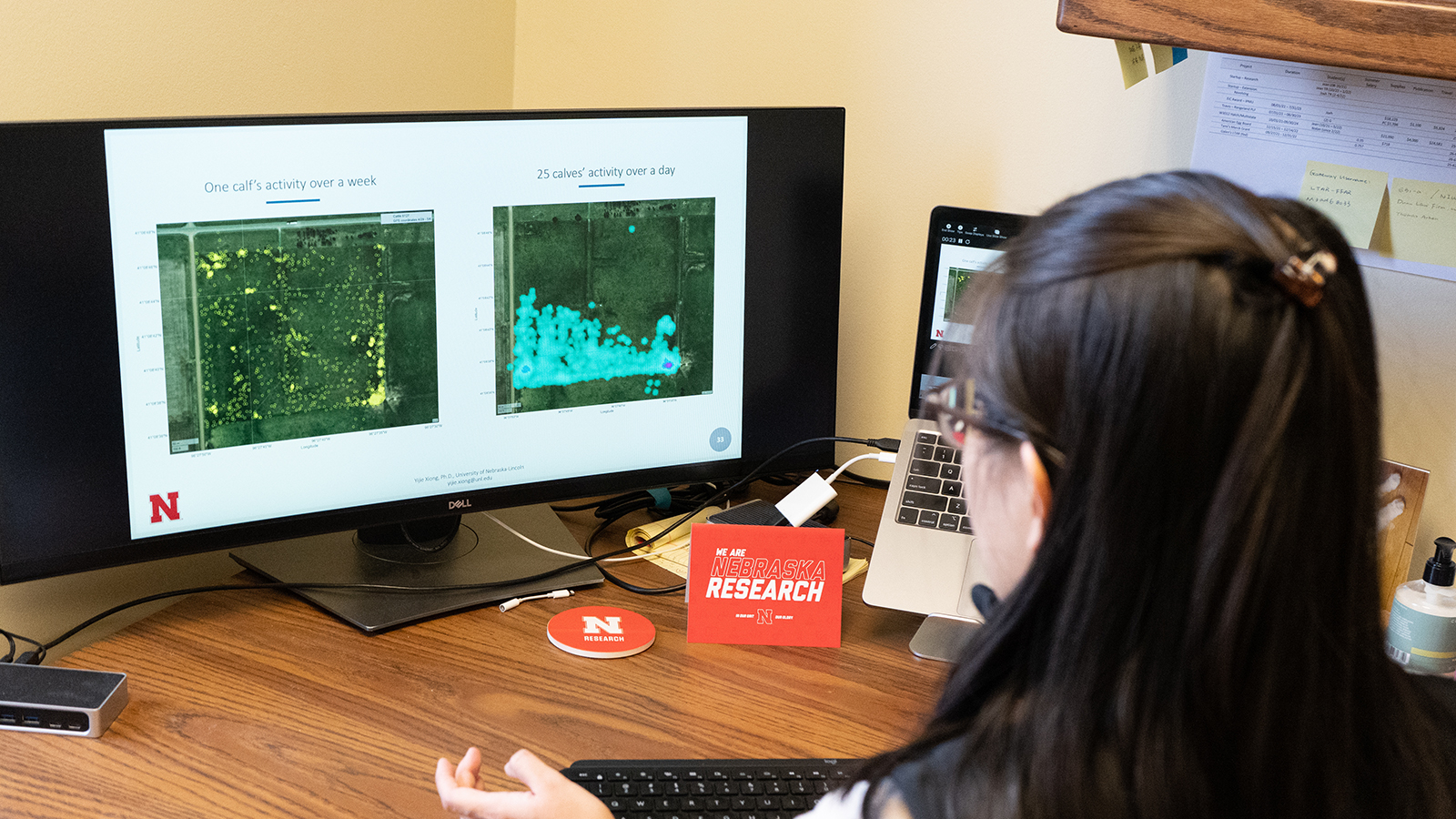This specialization is intended to serve the needs of a growing population of students seeking an advanced Animal Science or Biological Systems Engineering degree with specialized training in the space of animal health, welfare, and precision management. The research programs in this specialization includes both applied and basic research in multiple livestock and poultry species. Research projects directed by faculty members offer a wide range of opportunities for both undergraduate and graduate students.
Program Features
Targeted Interdisciplinary Focus
The specialization strategically blends three distinct disciplines – animal health, animal welfare and wellbeing, and precision livestock management technologies. This targeted selection aims to equip students with a comprehensive understanding of both traditional and modern approaches to agricultural animal management.
Innovative Solutions in Animal Management
We integrate advanced precision technologies such as novel instrumentation and video tracking for animal behavior and health monitoring, and molecular technologies like genomic selection and RNA vaccines. These innovations position students to be competitive in modern animal agriculture fields, including cattle, swine and poultry industries.
Shaping Careers for Industry Demand
Our students are preparing for in-demand roles by focusing on the practical and up-to-date application of animal health and precision livestock management technologies. Graduates are positioned to thrive in sectors where their expertise is highly valued, ensuring they meet the evolving needs of modern agriculture.
Notable Courses
Sensors and Control Systems for Agri-industries (AGST 816)
Application of sensors for measurement of process control variables and implementation of microcomputer-based measurement and control systems. Basic electrical and electronic instrumentation plus control of electrically, penumatically and/or hydraulically powered systems.
Genome Analysis (ASCI 832)
Theoretical and practical aspects of: structure and function of eukaryotic genomes; genome sequencing and assembling, polymorphism and isoform detection and genotyping; gene and genome annotation; strategies used to identify genetic variants responsible for phenotypic differences; and personalized genomics, social and ethical aspects associated with genomic information.
Physiology of Animal Cells & Tissues (ASCI 843)
Molecular, cellular, and tissue dependent functions of neurons, skeletal and smooth muscle, vasculature, and immune cells. Cellular regulation of important physiological processes including blood flow, gas exchange, inorganic solute homeostasis, acid-base balance, water balance, appetite control, and thermal regulation will also be studied. Understand cellular and molecular processes that ensure homeostasis and promote integration of physiological systems.
Livestock Management of Range and Pasture (ASCI 845)
Mammalian physiology and cellular mechanisms. Physiology of the cell, embryology, and neuro-sensory, neuromuscular, endocrine, and reproductive systems.
Topics in Immunology (VBMS 910)
Basics of immunology; critical analysis of reports taken from scientific literature of immunology.
Independent Study in Animal Welfare (ASCI 896)
Explore the origins of human responsibility to animals in domestication, and examine the historical, biological, ethical and social aspects of human-animal interaction in Western Culture.
Other Graduate Courses
These are just some of the courses you will take in our graduate program. Click below to learn more about our other animal science graduate courses.
Explore CoursesAnimal Science Graduate Programs
- Typically completed in 2 years
- 30 credit hours required
(including 6-10 research thesis hours)
- Typically completed in 4-5 years after the B.S. degree or 2-3 years beyond the M.S. degree.
- One half (90 credit hours beyond the B.S. degree) must be completed at the University of Nebraska-Lincoln.
- A professional degree in agricultural science, community development and natural resources at the master’s level
- Flexibility that allows you to design an area of study that addresses your educational goals
- Online courses allowing you to earn the degree remotely
- Animal Science
- Beef Cattle Nutrition
- Extension Education Experience
- Teaching Engagement Experience
Huskers Do Big Things
Program Alumni
- Dr. Karly Anderson, Humane Handling Institute
Our Research
Our research programs in Animal Health, Welfare, and Precision Management include both applied and basic research in multiple livestock and poultry species. Research projects directed by faculty members offer a wide range of opportunities for both undergraduate and graduate students.
Explore ResearchOur Faculty
Prior to applying, please contact a specific animal science faculty member in your area of interest. Click below to meet some of our faculty in this specialization.
Meet the Specialization FacultyQuestions? We're Here to Help
If you have questions about any of our specializations within the Animal Science graduate program, please contact a member of our graduate student services team below.


